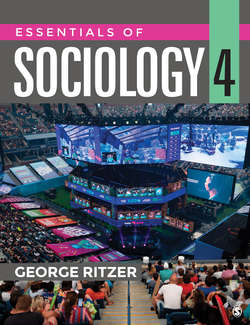Читать книгу Essentials of Sociology - George Ritzer - Страница 57
На сайте Литреса книга снята с продажи.
Feminist Theory
ОглавлениеA central aspect of feminist theory in general is the critique of patriarchy (male dominance) and the problems it poses not only for women but also for men. Feminist theory also offers ideas on how everyone’s (women’s and men’s) situation can be bettered, if not revolutionized (Adichie 2015; Bromley 2012; Lengermann and Niebrugge-Brantley 2014; see also the journal Feminist Theory).
Despite the many global and individual changes in women’s lives over the almost two centuries since sociology came into existence, there is also a broad consensus among feminist theorists that women continue to face extraordinary problems related directly to gender inequality. As you will learn about more in Chapter 9, these problems include, among innumerable others, a persistent wage gap between men and women in the United States and systematic and widespread rape by invading forces in wartime. These extraordinary problems require extraordinary solutions. However, feminist theories vary in the degree to which they support dramatic, even revolutionary, changes in women’s situation. Some feminist theories suggest that the solution to gender inequality is to change social structures and institutions so that they are more inclusive of women and allow more gender diversity. Other feminist theories argue that because those very structures and institutions create gender difference and inequality, we must first deconstruct and then rebuild them in a wholly different way.
Women of color have sometimes been dissatisfied with feminist theory for not representing their interests very well. Several scholars argue that feminist theory generally reflects the perspective of white women while ignoring the unique experiences and viewpoints of women of color (Collins 2000; hooks 2000; Moraga and Anzaldua 2015; Zinn 2012). Similarly, studies related to race tend to focus largely (or wholly) on the position of men. Thus, many contemporary feminists have advocated for scholarship that takes into account not just gender but also how it intersects with race and ethnicity, social class, and sexuality. The upcoming discussion of critical theories of race and racism provides more detail on this view.
